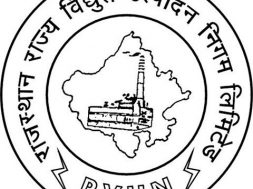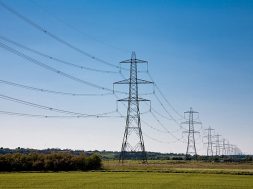
Intelligent Shutoff Solution of Sungrow to Provide “Double Insurance” for Power Plant Safety – EQ Mag Pro

With the net-zero carbon becoming a global, the renewable energy industry represented by PV is booming. However, with the thriving photovoltaic market, several safety accidents sparked heated debate.
According to statistics, more than 80% of fire accidents in PV power plants were caused by DC-side faults, so how to ensure the safety of power plants more effectively has become a major concern of the industry.
As a dedicated pioneer in PV inverter sector, Sungrow always puts safety as the priority. Based on the customers’ demand on both safety and efficiency, the research and development of a new intelligent shutoff solution can make it accurately identify various types of faults and quickly shut off, thereby ensuring the safety of the power station.
Safer with fast shutoff
For the safety on the DC side, the related GB and IEC standards stipulate that: In the design scheme of connecting 3 or more strings to 1 MPPT, overcurrent protection devices must be added to the PV-side strings, and no protection devices are required in the scheme of connecting 2 strings to 1 MPPT.
On the basis of the design concept of connecting 2 strings to 1 MPPT, Sungrow integrated a new disconnector through the inverter protection control algorithm and developed an intelligent shutoff solution, which can provide double insurance for the safety on the DC side. When faults such as short circuit and reverse connection occur, the system with reliable disconnecting capability can be quickly disconnected. According to the fault type, the system can be shut off within 10 ms at best, thereby realizing instantaneous protection, eliminating risks and ensuring the safety of the power station.
More intelligent fault identification
The conditions of large-scale PV plants are complicated, and there are many types of PV modules and mounting systems. Under certain complicated working conditions, it could easily cause inconsistent voltage between strings and lead to the phenomenon of backfeeding. Sungrow designed a more intelligent shutoff logic based on massive database, operating and analyzing the field fault data through big data operation, distinguishing the fault types such as “backfeeding” and “reverse connection” and make accurate determinations.
In addition, Sungrow’s inverter adopts the design scheme of connecting 2 strings to 1 MPPT. In certain cases of backfeeding, even if the inverter is not shut off, the corresponding modules and cables only withstand 1 times the current, which is well within their rated tolerance range, so the backfeeding will not affect the system security, and there is no need to shut off the system.
It is worth noting that whether shutoff is required in certain backfeeding cases depends on whether the backfeeding causes unsafe consequences: For example, under the scheme of connecting 2 strings to 1 MPPT, shutoff is required in the case of 1 time current backfeeding. However, in the design scheme of connecting multiple strings to 1 MPPT (taking the connection of 5 strings to 1 MPPT as an example), if one of the strings is backfed by the remaining 4 strings, there will be 4 times backfeeding current, far exceeding the tolerance range of the modules and cables. Under this kind of design scheme, shutoff is required for all backfeeding cases; otherwise, it will cause fire risks.
Both safety and efficiency need to be ensured for the return of investment of PV plants. Although safety can be ensured by shutoff, frequent shutoff will seriously have a series of negative effects on the project:
Affecting power generation yields: If the backfeeding occurs frequently, it will bring frequent shutoff and affect the power generation.
Increasing the workload of operation and maintenance: After shutoff, operation and maintenance personnel need to be back to the site frequently to reset the disconnector, which increases the human resource’s cost.
Affecting the life span of disconnector: Frequent shutoff will affect the useful life of the disconnector, thereby affecting the safety of power plants.
Consequently, whether the disconnector is shut off or not is not only a test of the rationality of the system design, but also a profound understanding and insight into the device, system and project operation and maintenance. The new intelligent power shutoff solution of Sungrow can realize accurate shutoff and ensure safety as well as benefits.














